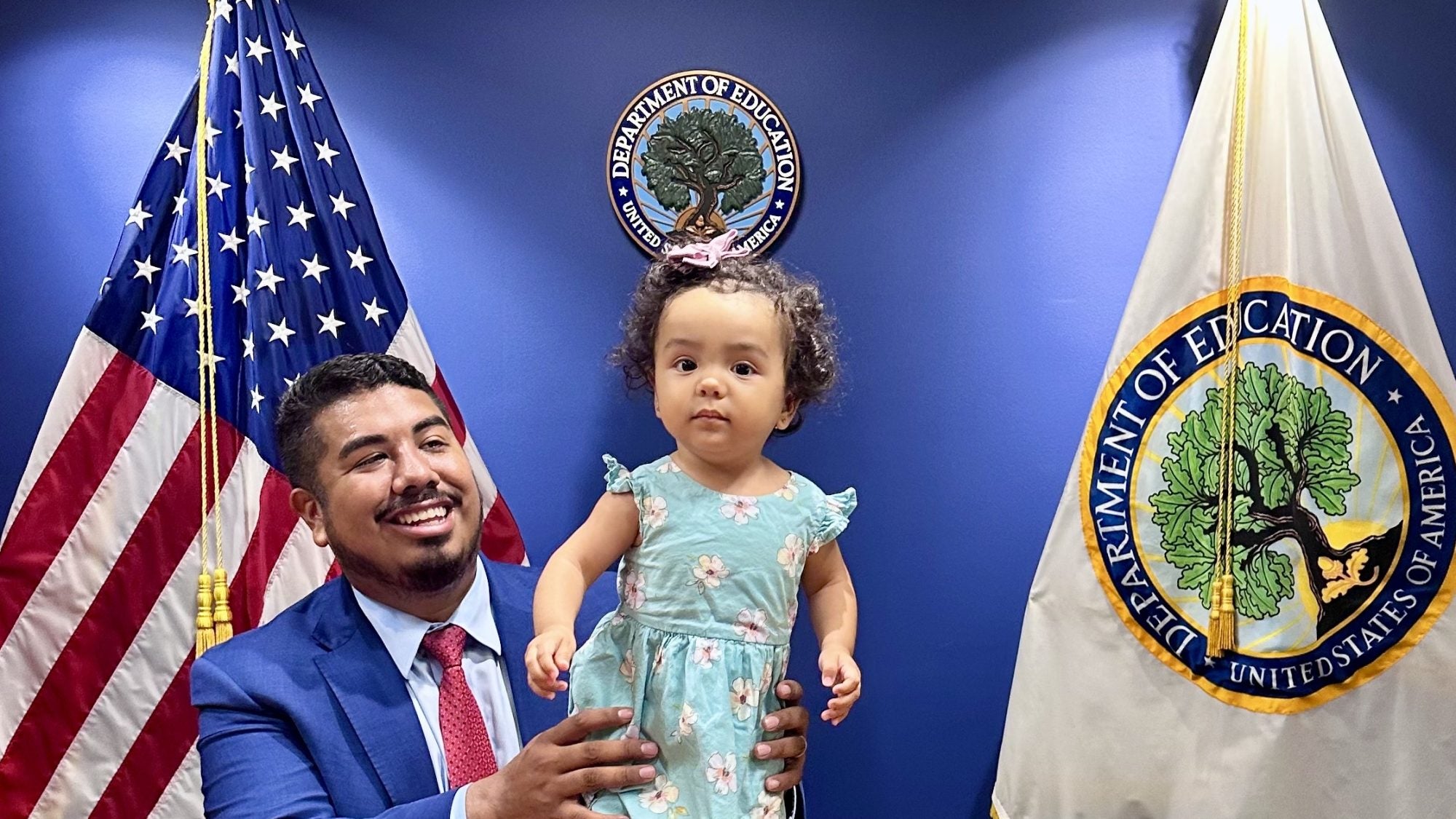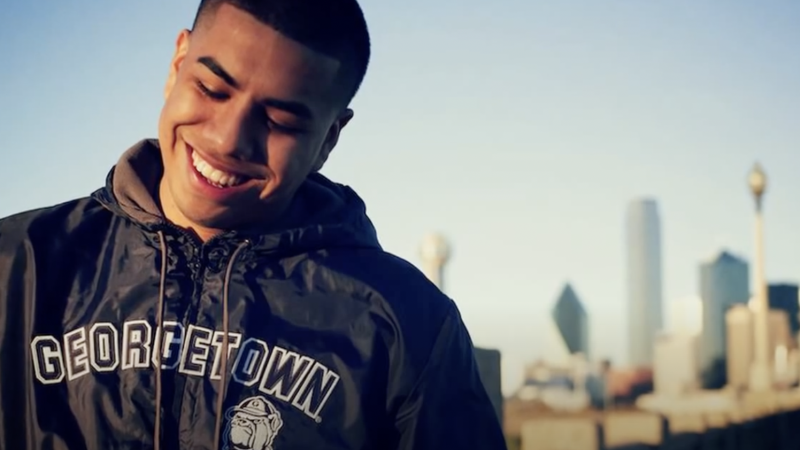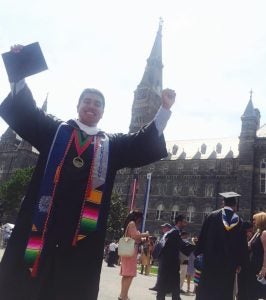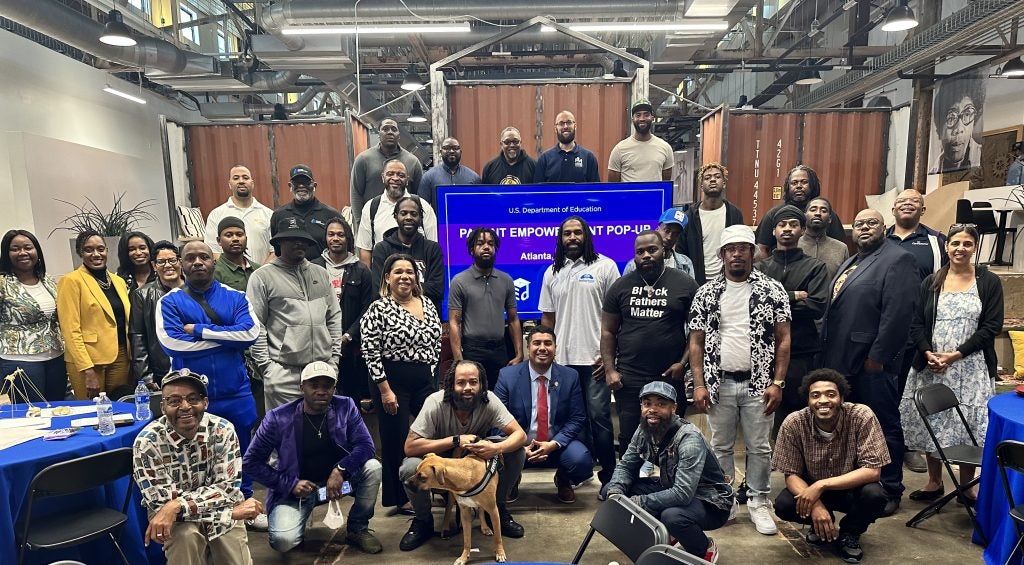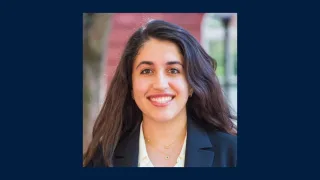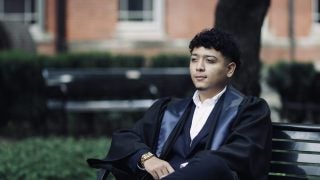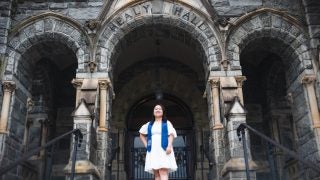Last August, Adan Gonzalez (C’15) was holding his three-day-old daughter when he got a call from the White House.
He had been appointed a White House Fellow, a high-profile fellowship for emerging leaders to work at the top level of the government. A former national boxing champion at Georgetown, Gonzalez got the same rush he used to experience before stepping into the ring. Pure adrenaline.
“I felt ready,” he said.
One year later, Gonzalez is wrapping up his fellowship, where he’s worked for the Office of the Secretary for the U.S. Department of Education. He’s worked alongside senior U.S. government officials on international and domestic policy trips. He’s created a stream of pop-up events around the country to invite parents to play an active role in education. And he’s eager to return to his hometown of Oak Cliff, a largely Hispanic neighborhood in Dallas, Texas, to share his learnings with his community.
“As a brown Mexican American kid in South Oak Cliff, I could never have imagined this experience,” he said. “All I can do is make sure I replicate those same opportunities for generations to come.”
Gonzalez’s mission and mindset are crystal clear — and they haven’t wavered since he stepped foot on the Hilltop 12 years ago.
A Rosary, Trash Bags and Hope
In 2011, Gonzalez arrived at Georgetown for the Community Scholars’ summer program, which helps first-generation college students transition to college.
Gonzalez carried a few dollar bills, a rosary and trash bags stuffed with his clothes — make-shift storage he found after he couldn’t afford the baggage fee on his flight.
Gonzalez remembers looking up at Healy Hall and closing his eyes.
“I asked God to let me make it, so that one day I could be able to help others,” he said.
Gonzalez followed through on his ask. His sophomore year, he organized a luggage drive in his hometown so that underprivileged college-bound students wouldn’t face the same obstacle he did. And as he took courses in government and education in the College of Arts & Sciences, he gained a clearer view of his own upbringing and how he could shape the future.
“For me, the opportunity to obtain an education allowed me to spend time learning,” he said. “I learned about the past, about systems in place. I learned about the present, about struggles greater than my own. And I learned about shaping the future, about thinking critically and developing solutions.
“I was determined to share what I was learning with others to empower my neighborhood to become a place where people wanted to live, one family at a time.”
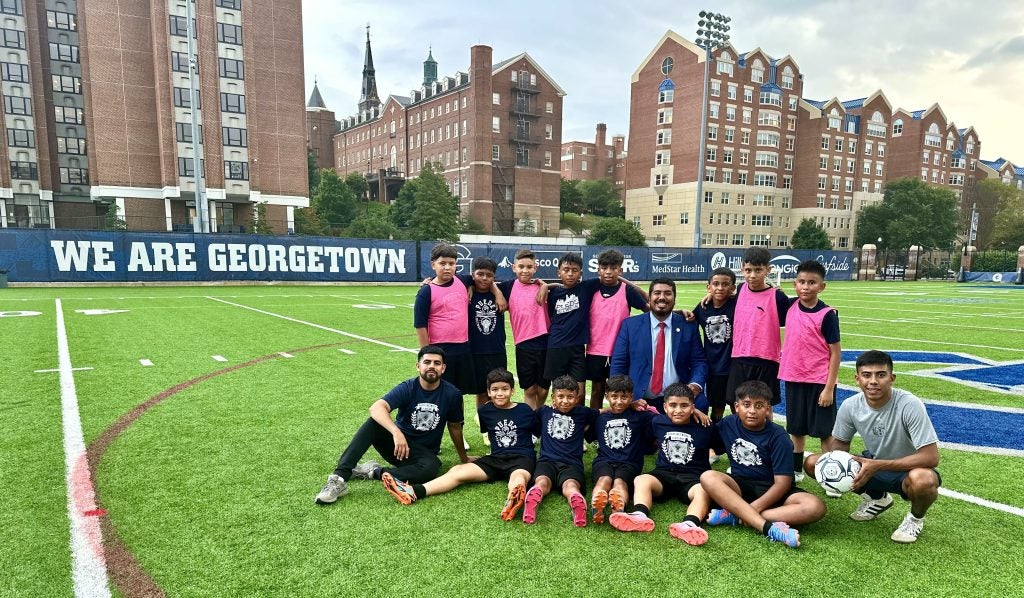
Backyard Tutoring
Gonzalez grew up in a one-room apartment he shared with six other family members. He remembers gang fights outside their apartment that often broke the windows and broke up their kickball games.
He watched his parents, who immigrated from Mexico, work long hours for little pay and hustle for bread and milk. Gonzalez himself sold snacks at a local flea market to buy his school uniforms.
In high school, Gonzalez realized education offered a way to better his and his relatives’ lives. He applied to Georgetown and to national scholarships on the curb of a McDonald’s with a borrowed laptop. His senior year, he was elected class president and graduated salutatorian. He received one million dollars worth of scholarships.
At Georgetown, Gonzalez kept moving forward, but he always looked back at the community he grew up with, keenly aware of the support, sacrifices and people who got him to where he was.
“I had no clue what the difference between a BA and a BS was, but I did know that I came representing incredibly talented, smart and resourceful people. People who never had a fair shot at fulfilling their dreams,” he said.
His sophomore year, Gonzalez created the Puede Network, an organization to mentor students and break cycles of under-education. He began tutoring students in his backyard and living room in Texas.
“I’ve learned that with the opportunities I receive, I’m able to create more opportunities for others. That was the whole point of the Puede Network,” he said in a 2013 Georgetown article of his organization. “I’m no longer this poor kid with dreams. I’m a Georgetown student with goals.”
